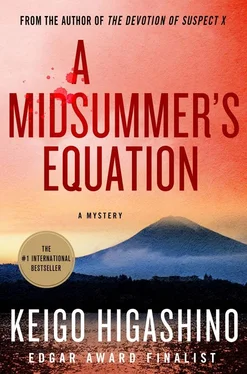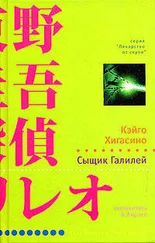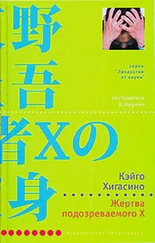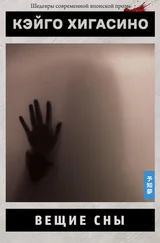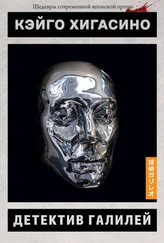But Tsukahara hadn’t answered Tatara’s question. He just shook his head and told him he was only kidding.
“There are plenty of detectives who remember every case they’ve been on, big or small. I’ll bet most of them couldn’t tell you why, either. So I didn’t press him on it. But now that we know he paid Senba’s old house a visit, I’m starting to think there was more to it. I need you to look into this.”
Kusanagi tried to go straight to the source and set up a meeting with Senba by himself, but his whereabouts proved hard to pin down. Utsumi had found out that when he got out of prison, an acquaintance had gotten him a job working at a recycling center in Adachi, but the company had gone out of business soon afterward. No one knew what happened to Senba after that.
Which left Tsukahara as their only lead. If he was that obsessed with Senba, it was possible they’d been in contact. Kusanagi would’ve preferred to check his notebooks or phone, but both of those were being held at the Hari Police Department.
Utsumi came jogging back to the car. “I found it, just a little up ahead. There’s a place to park.”
“Thanks,” Kusanagi said, releasing his parking brake.
Masatsugu Tsukahara’s house was a simple, wooden, two-story affair. His widow, Sanae, let them in, showing them to a room with a view out on a small rear garden. There was a small alcove for the family altar in the room, with pictures of people Kusanagi assumed were Sanae’s and her husband’s deceased parents. He wondered how soon Tsukahara’s photo would be joining them.
“The mortician will be releasing the body to me tomorrow,” Sanae said, her voice as thin as her features.
Kusanagi expressed his condolences before breaking the news that there was an increasing possibility that her husband’s death had not been a simple accident. Sanae didn’t seem surprised.
“I thought it might’ve been something like that the moment I heard he died. It just didn’t make sense, him getting drunk and falling off some rocks...” She shook her head. “That wasn’t him.”
Though her tone was soft, it held absolute conviction.
“Do you have any idea why your late husband might’ve gone to the house of a man he once arrested, one Hidetoshi Senba?” Kusanagi asked.
She frowned and shook her head. “The local police called and asked me the same question when they found out, too. I know he often thought about his old cases, but I never heard the name Senba from him myself. To my knowledge, they never corresponded.”
“Did your husband ever keep case files around the house?”
She shook her head again. “He got rid of all of those when he retired. I remember him saying he didn’t need them anymore. Since he wasn’t a police officer anymore, keeping them would be an invasion of privacy.”
Kusanagi nodded, a picture of the old, steel-eyed detective forming in his mind.
“But there’s a chance he might’ve left something in the study. Would you like to take a look?”
“If I might, yes,” Kusanagi replied immediately.
The study was a small room on the second floor. A wooden desk sat near a window, with a bookshelf beside it. Most of the books were historical fiction. There wasn’t a single mystery in sight, let alone crime fiction or anything to do with the police. On the lowest shelf sat a thick phone book.
With Sanae’s permission, he opened the drawer on the desk, but found nothing bearing any relation to the case.
The phone rang downstairs, and Sanae excused herself to go answer it.
Kusanagi pulled the phone book off the shelf.
“Something catch your eye?” Utsumi asked.
“Well, people usually put these directories by the landline phone — but there isn’t even a cordless phone up here.”
“Good point.”
“Also, this is the phone book for Tokyo, and from last year — well after he retired. Why do you think he needed this anymore?”
Kusanagi rested the phone book on the desk and began leafing through the pages, noticing several had been dog-eared. He opened them to find that most were pages showing budget hotels in Tokyo’s Taito and Arakawa wards. In particular, there seemed to be a lot of them with addresses in South Senju, near the Namidabashi Bridge.
Kusanagi exchanged a glance with Utsumi, then he smoothed out the dog-eared pages and closed the book. He’d just put it back on the shelf when he heard footsteps coming up the stairs.
“That was the Hari Police. They called to tell me someone from the prefectural police would be coming to pay me a visit tonight to ask some more things about my husband. What should I tell them?”
“Everything you told us. Just the facts should be fine,” Kusanagi said.
“Of course. So, did you find anything?”
“Unfortunately, no,” Kusanagi said, shaking his head and standing. “Sorry for the trouble. Just one more thing: I was hoping I could borrow a photograph of your husband. Something that shows his face clearly.”
“Why didn’t you tell the widow about the telephone book?” Utsumi asked shortly after they got into the car and began driving. Kusanagi was surprised she’d been able to resist the urge to ask so long.
“Because I don’t know that it has anything to do with the case. It’s never good to bring unsubstantiated evidence to the bereaved. That’s one of the golden rules of police work.”
“But you think it does have something to do with our case, don’t you?”
“Maybe. What do you think?”
“I think it does.”
Kusanagi glanced over at his passenger. “That was quick.”
“Well, you have to wonder why Tsukahara would have that phone book after retirement. If it was to look up cheap motels, then I can only think of one possible reason.”
“And that is?”
“He was looking for someone,” Utsumi said immediately. “Tsukahara was looking for someone without a permanent address. And why would this person not have a permanent address?”
“Because he was unemployed with a criminal record, which prevented him from renting?”
“Think I’m jumping to conclusions?”
“Perhaps. I can’t say whether Senba was the one staying in a budget hotel or not, but it’s very likely that Tsukahara was doing a little sleuthing in his retirement. Old habits die hard.”
If Tsukahara had been on the trail of Senba, then they could pick up where he left off, Kusanagi thought.
“Can I ask you something?”
“What?”
“Are you going to tell the local police about this? If you do, they might help us find Senba.”
“They don’t know Tokyo like we do.”
“So you’re not going to tell them about this, or what the director said about Tsukahara remembering Senba’s case?”
Kusanagi frowned. “You’re awful feisty all of a sudden. Do you have a problem with not telling them?”
“Are we under orders from the director to offer all possible assistance to the prefectural police?”
Kusanagi sighed. “Haphazardly feeding them information isn’t going to help solve this case.”
“What do you mean?”
“I called the Green Rock Inn last night to talk to Yukawa.”
“You called the inn? Why not his cell phone?”
“I tried that first, but he didn’t pick up. Apparently, his phone got busted in an experiment — something about shoddy waterproofing. Anyway, I talked to him, and of course he knew about the death, but he didn’t know any details beyond the basics. So I explained to him what happened, and how I got put on the case.”
“The professor must’ve been surprised.”
“Not really. In fact, not at all. He didn’t know that the dead man was a former detective, but he had suspected murder.”
“Really? Why was that?”
Читать дальше
